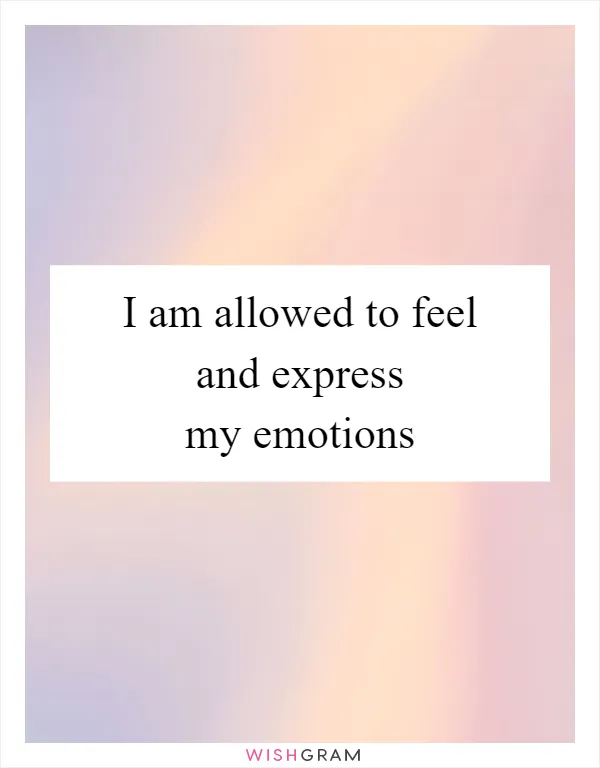I am allowed to feel and express my emotions
When it comes to our emotions, it's important to remember that we have the right to feel and express them. It's easy to get caught up in the expectations and judgments of others, but the truth is, nobody has the power to dictate how you should feel or express yourself. Emotions are a natural part of being human, and denying them can lead to harmful consequences.
Affirming "I am allowed to feel and express my emotions" is a powerful reminder that you are entitled to your own emotional experiences. Suppressing your feelings can have detrimental effects on your mental and physical well-being. Bottling up emotions often leads to increased stress, anxiety, and even physical ailments. It's crucial to give yourself permission to acknowledge and process your emotions in a healthy way.
Expressing your emotions is a way of honoring your authenticity. By allowing yourself to be vulnerable and sharing your feelings, you are being true to who you are. It takes courage to open up, but doing so fosters stronger connections with others and can deepen your relationships. When you express your emotions, you create a space for understanding and empathy to thrive.
Remember, it's not just about allowing yourself to feel the positive emotions. Negative emotions are equally as valid and important. Giving yourself permission to experience sadness, anger, or fear allows you to work through them and find healing. It's okay to not always be happy - life is filled with ups and downs, and it is within your rights to authentically express those emotions.
It's worth noting that expressing your emotions should be done in a way that is respectful and considerate of others' boundaries. While you have the right to express yourself, it's important to do so in a way that does not infringe upon the rights and emotions of others. Healthy emotional expression involves active listening, empathy, and a willingness to engage in meaningful dialogue.
